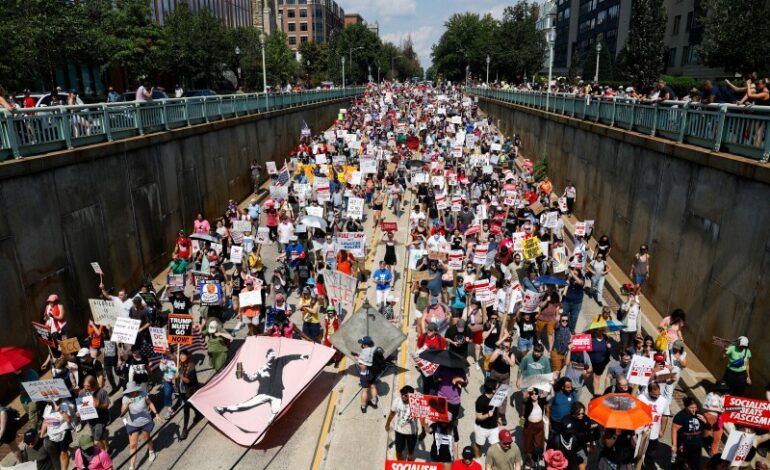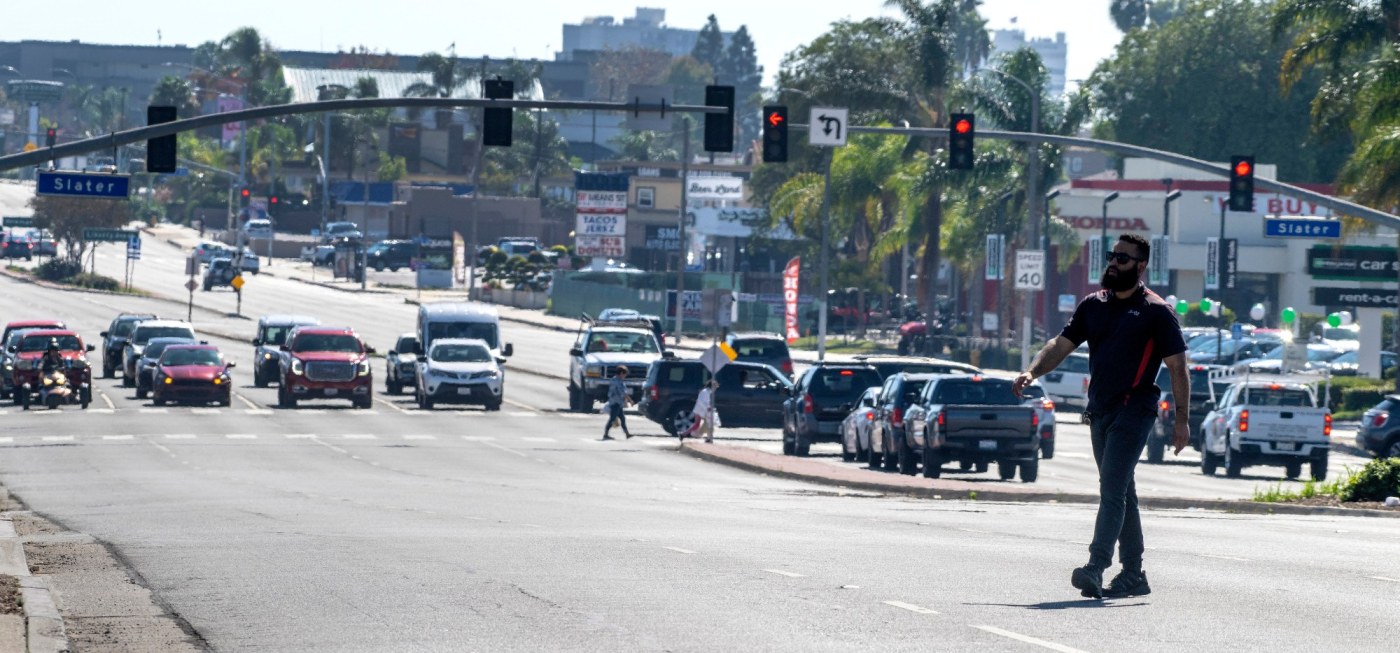Thousands March in D.C. to Protest Trump’s Troop Deployment

Several thousand protesters gathered in Washington, D.C., on Saturday to demand that U.S. President Donald Trump withdraw National Guard troops currently patrolling the capital. The demonstration, part of the “We Are All D.C.” march, included a diverse group of participants, ranging from undocumented immigrants to advocates for Palestinian statehood. Protesters carried signs with messages such as “Trump must go now,” “Free DC,” and “Resist Tyranny,” expressing their opposition to what they termed an authoritarian regime.
Protesters voiced their concerns over Trump’s recent actions, which included deploying over 2,000 National Guard troops to D.C. last month. The president justified the deployment by claiming it was necessary to “re-establish law, order, and public safety” amid rising crime rates. Critics argue that Trump’s measures represent a significant federal overreach, particularly as crime in Washington has reportedly reached a 30-year low, according to Justice Department data.
Protests and Political Tensions Escalate
During the march, participants expressed fears that Trump’s actions could set a precedent for similar measures in other cities. Casey, a protester who declined to provide her last name, remarked, “What they’re trying to do in D.C. is what they’re trying to do with other dictatorships.” She emphasized the need to resist such actions before they spread further.
In a social media post, Trump threatened to extend his military approach to other Democratic-led cities, specifically mentioning Chicago. His comments included a reference to the 1979 film “Apocalypse Now,” heightening tensions between his administration and local officials. Illinois Governor J.B. Pritzker responded, stating he had learned from reporters about the federal government’s plans to deploy additional Immigration and Customs Enforcement (ICE) agents and military vehicles in Chicago.
The National Guard, which functions as a militia under the governors of the 50 states, is under the direct command of the president when deployed federally. Trump has indicated that the National Guard’s mission in D.C. will extend at least until November 30, 2024, as the Army announced the extension of their orders.
Local Reactions and Legal Challenges
While many residents have welcomed the National Guard’s presence, calling for increased security in less affluent neighborhoods, others have expressed alarm at the militarization of the capital. Washington D.C. Mayor Muriel Bowser has praised the surge in federal law enforcement but has also indicated her hope that the National Guard’s mission will conclude soon. She noted a reported decline in crime, including carjackings, since the troop deployment.
In response to the ongoing situation, D.C. Attorney General Brian Schwalb filed a lawsuit on Thursday seeking to block the troop deployment, arguing that it violates constitutional and federal laws. This legal action reflects the growing tensions surrounding federal involvement in local law enforcement.
As the protests unfolded, Trump was not present at the White House, instead playing golf at his course outside the city. His absence did not diminish the fervor of the demonstrators, who marched past the White House voicing their demands for an end to what they described as an occupation of the capital.
In a subsequent post on his Truth Social platform, Trump reiterated his intentions towards Chicago, stating, “I love the smell of deportations in the morning,” while also parodying a famous line from the movie. His post included an AI-generated image depicting him in a military uniform, further emphasizing the combative tone of his administration’s current stance.
The unfolding protests and legal actions reflect a significant moment in U.S. politics, as citizens grapple with the implications of federal military presence in civilian areas. The situation in Washington D.C. is emblematic of broader national debates regarding law enforcement, civil liberties, and the balance of power between federal and local authorities.






